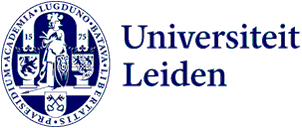
Academia in Motion: ‘A safe environment where mutual respect and listening to one another are priorities’
How do we work together to create an open university where everyone’s contribution is recognised and valued. For Dean and Professor of Science, Technology and Innovation Studies Sarah de Rijcke, Academia in Motion means fostering a sense of community. ‘I believe that a very important key rests with managers to set a good example.’
Hi Sarah, what do you mean exactly by ‘fostering a sense of community’?
‘I mean creating an academic environment where people not only feel valued, but also actively contribute to a culture of openness and collaboration. For me, it’s about building a community where we recognise and make use of one another’s diverse talents, and where we inspire one another.’
Sounds good! How can we achieve that?
‘I believe it’s very important to create a safe environment where we encourage personal development and critical thinking, and where mutual respect and listening to one another are key. But it also has to be an environment where people feel free enough to joke with one another. That means we have to safeguard psychological safety, so that people can have the courage to be themselves and share their ideas.
‘In addition to that we of course focus on recognising diverse talents. This is an important theme of Academia in Motion: valuing not only good research performances, but also teaching, patient care and all the important supporting administrative and advisory activities that go on at our university. I’m also thinking about mentorship and good guidance of new members of staff with clear career perspectives.’
What are the challenges in creating psychological safety?
‘I think they are inherent in the academic field, where people are generally individually stimulated. As a scientist, even today you are often still taught to talk mainly about yourself, your own contribution, your publications, and to always show that you are available and preferably at work. It is within that context that we currently assess what constitutes good work. I think this also makes it more difficult for people to show their vulnerability and say that they have too much on their plate, that at the weekend they would rather be doing something else or that they see career opportunities outside academia.’
How can you make it possible for colleagues to show their vulnerability?
‘I believe there is a very important role here for people in managerial positions – and that, as a manager, you have to make extra efforts to set a good example and create a situation in which people feel safe. That could be in the way you put your team together, for example. Or on a sunny day you might say, ‘We’re going to do something different today, we’re off to the beach.’ Or you choose to treat everyone in the same way. I think it’s really a matter of what our role models do. Their actions permeate down and we need a whole lot of good examples to achieve a ripple effect. Ultimately, Academia in Motion is actually a culture change. There’s no single quick solution where we all go off on a training course for an afternoon and then it’s done.’
How do you as a manager try to do your bit?
‘At our faculty opening of the academic year we deliberately chose not to fill the programme with naming all the prizes and subsidies that have been won. That’s all fantastic, of course, and we’re very proud of these achievements, but in my speech I chose to talk about a project where colleagues seek one another out across disciplines and institutes and explore new research projects together. To strengthen that community feeling, I myself also try to stay curious about the work of other people outside my own field. And it’s extremely inspiring to involve not only university colleagues in your work, but also people from outside, for example by working together with societal organisations. I also try to create a context where you can approach one another with a smile and a joke, and where making a mistake can be seen as an opportunity to learn.’
How we’re setting Academia in Motion at Leiden University
This interview is part of a series highlighting the various actions colleagues are taking to support culture change at Leiden University. Together we are becoming an open knowledge community, closely connected to society, that recognises and rewards everyone’s contribution to our strategic goals. Curious? Visit the Academia in Motion website.
